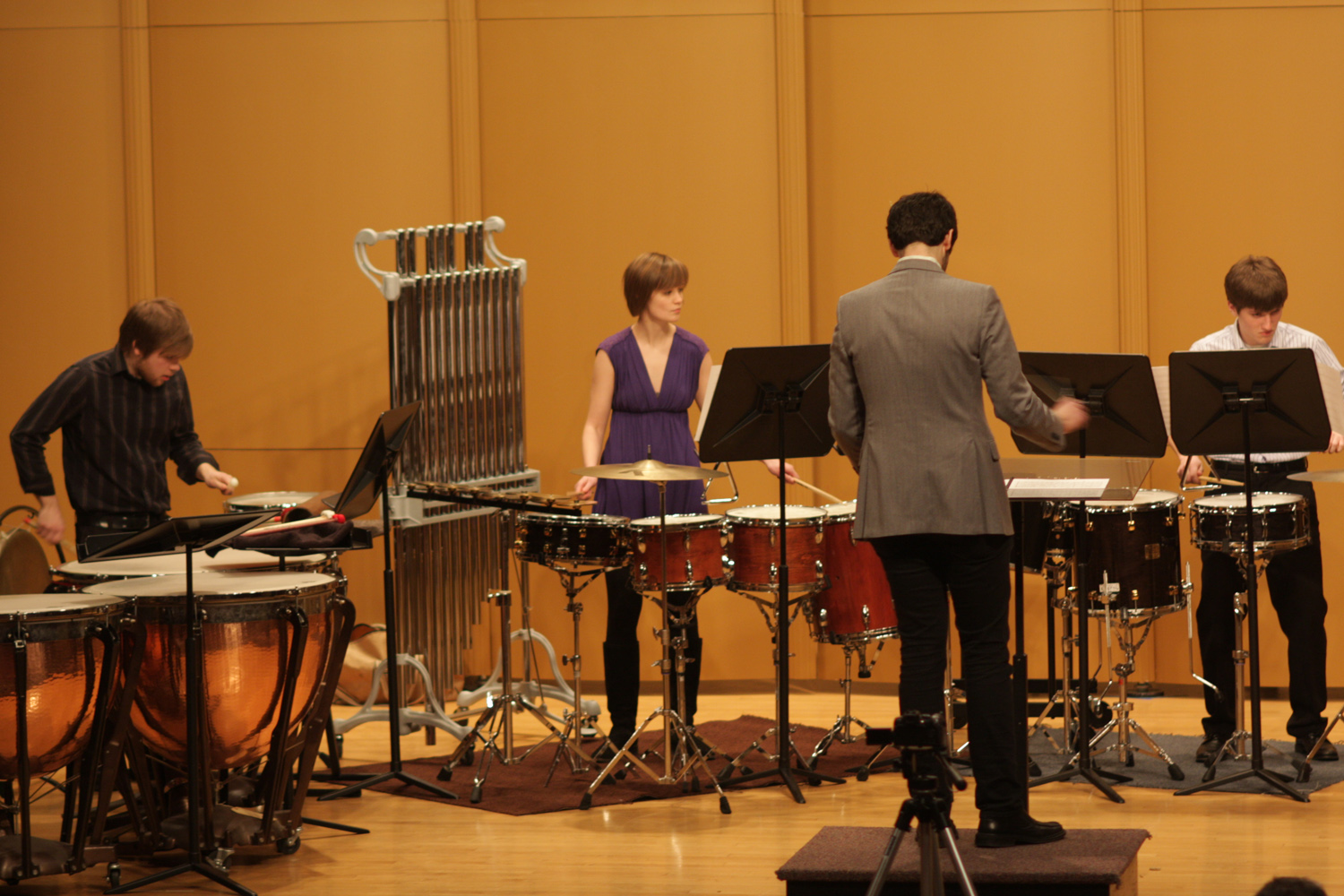
Nico Sophiea’s Feb. 20 senior composition recital reminded me just how good the students of the Puget Sound School of Music are. Fortunately for me, I had a chance to chat with Sophiea about his music, his influences and his compositional processes.
Although his primary instrument is percussion–Sophiea has played rock and jazz drums and performs with several of the school’s ensembles–he says he didn’t want drumming to be the only way in which he could express himself.
With a musician father and an artist mother, Sophiea says he grew up with plenty of good musical influences. Especially moved by composers like John Cage, Steve Reich and Mark Rothko, Sophiea also draws a large amount of inspiration from popular music like Deerhunter and Nirvana.
During his recital, inspired by the goings-on around him, Sophiea said a lot of his music was influenced by socio-economic issues, but that he resents “activist” art that withdraws from its object in order to offer commentary on it.
His first piece, “Syndicate,” written for cello and piano, was composed during his sophomore year. “It has a lot of rock influences in it and also a lot of Stravinsky,” Sophiea told me. Beginning sparsely, the piece worked its way into a complex tumult of rocking rhythms and aggressive harmony. The interplay between the cello and the piano, each contingent upon the other, suggested that the piece was about something much larger than itself. As quickly as the piece wound up, it was finished, with the last few luminous notes from the piano hovering in the air over a stunned audience.
Sophiea’s second work, “An Injury to One” for percussion ensemble, derived its name from the motto of the Industrial Workers of the World: “An Injury to One is An Injury to All.” Reflective of class struggle, the programmatic piece showcased Sophiea’s impeccable skill with percussion. As he took the podium to conduct the ensemble, there was a certainty in his stance that was mirrored by each of the players before him.
As the piece got underway, I was struck by the unfolding rhythmic patterns of the instruments that wove in and out of each other. A hypnotic bass drum propelled the music forward, urging the instruments into an upward frenzy where they became unified. Cacophonic, the music never once became chaotic or disorganized. An ethereal second movement closed the room in a pensive claustrophobia so thick you could have heard even the smallest sound from across the concert hall.
The final piece, “Under Siege,” is the most recent. Inspired by a poem of the same name by Palestinian poet Mahmoud Darwish, the piece best accomplished the reflective state that Sophiea strove for all along. Beginning with hypnotic, pulsing breathings of violin, cello and bass, “Under Siege” cultivated an aura of mystery, a sacred, deserted place into which the listener could pour her thoughts and examine.
Using innovative techniques like striking the piano strings with a mallet and having vocalists speak, breathe, and sing into a timpani, “Under Siege” was by far the lovliest piece of the set. I couldn’t help but think that for an undergraduate, Sophiea had flawlessly crafted a beautiful work that would carry him far.
